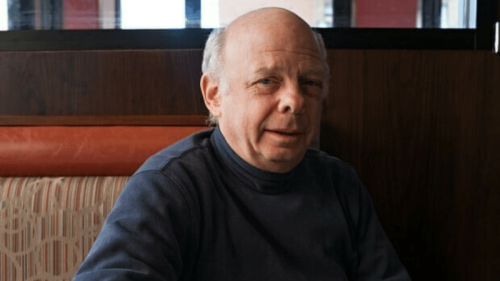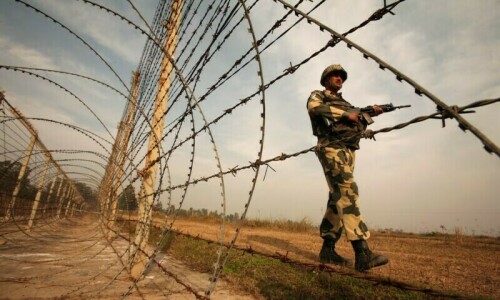
ISLAMABAD: The Foreign Office said on Thursday that the meeting between the prime ministers of Pakistan and India on the sidelines of cricket World Cup semi-final in Mohali provided impetus to the process of engagement for normalisation of bilateral ties.
“Mohali was a win-win for the Pakistan-India process of engagement. Mohali has provided further impetus to the engagement,” said Foreign Office spokesperson Tehmina Janjua at the weekly media briefing.
Despite the ‘positive atmospherics’ that the Foreign Office tried to project, the problems in the complicated relationship between the neighbours marred by decades of mistrust were still clearly at the back of the minds of its diplomats.
“We do not underestimate the difficulties but have faith and confidence in a bright future for the peoples of our region,” she said.
The spokesperson listed some of the more difficult issues in the relationship. “Of course, there are longstanding issues, including the issue of Jammu and Kashmir, that need to be addressed earnestly, with a view to finding a solution that accords with the aspirations of the Kashmiri people.”
However, there was no mention of terrorism as a major cause of bilateral distrust even though the problem had prevented the resumption of dialogue after the November 2008 Mumbai attacks.
The Pak-India ties have been historically prone to accidents and analysts think both governments would have to go the extra mile to make the re-engagement successful.
It was in this context that Prime Minister Yousuf Raza Gilani had told Dr Manmohan Singh at the Mohali meeting that Pakistan hoped that the renewed process would be “uninterrupted and uninterruptible”.
Earlier this week, Pakistan and India resumed dialogue suspended since the Mumbai attacks with interior secretaries’ meeting in Delhi.
Both countries had last month unveiled a three-tier roadmap for talks starting at level of officials and leading up to foreign ministers’ meeting in Delhi in July. The interior secretaries’ talks will be followed by a meeting of commerce secretaries in Islamabad next month.
Ms Janjua said: “Pakistan is committed to a constructive, sustained and result-oriented process of engagement with India. We believe that dialogue is the only way forward. Constructive engagement is essential so that we move towards the goal of establishing good-neighbourly and cooperative relations.”
The spokesperson on more than one occasion emphasised the need for both countries to take ownership of the peace process, instead of allowing a third country to get involved in their bilateral affairs.
“The focus by us is that the two sides must endeavour to take ownership of their own affairs. We do not need a third country for us to take ownership of our own affairs.”
Although the third country was not named, it was an obvious reference to the US that had midwifed the re-engagement process and had encouraged both sides to return to the negotiating table for discussing outstanding matters.
On the question of Prime Minister Gilani not mentioning Kashmir in his media comments in India, Ms Janjua said: “The foreign secretaries will discuss the issues of peace and security, Jammu & Kashmir and cultural exchanges. That is where Jammu & Kashmir will be discussed in the context of bilateral discussions.”
A major progress, the spokesperson said, was the revival of the Judicial Committee on prisoners.
“There is the Judicial Committee dealing with prisoners which will meet in Pakistan on April 19-23.”
The committee, which was formed for furthering the objective of humane treatment of nationals of either country arrested, detained or imprisoned in the other country, has been inactive since the suspension of peace talks after the Mumbai attacks.
BALI BOMBING SUSPECT: Ms Janjua said Pakistan was providing consular access to an arrested Indonesian man believed to be involved in the 2002 Bali bombing.
She confirmed the arrest, but said it was up to the Indonesian embassy to confirm the man’s identity.
“I can confirm the arrest of an individual who could be the Bali bombing suspect. It is now up to the Indonesian embassy to determine exactly who the person is.”
Umar Patek, a suspected member of Jemaah Islamiyah which is an affiliate of Al Qaeda, was arrested in Pakistan weeks ago.
He was allegedly the mastermind of the Bali bombing that killed over 200 people. Being one of the most wanted Southeast Asian terrorist, Patek carried a head money of $1 million.












































Dear visitor, the comments section is undergoing an overhaul and will return soon.